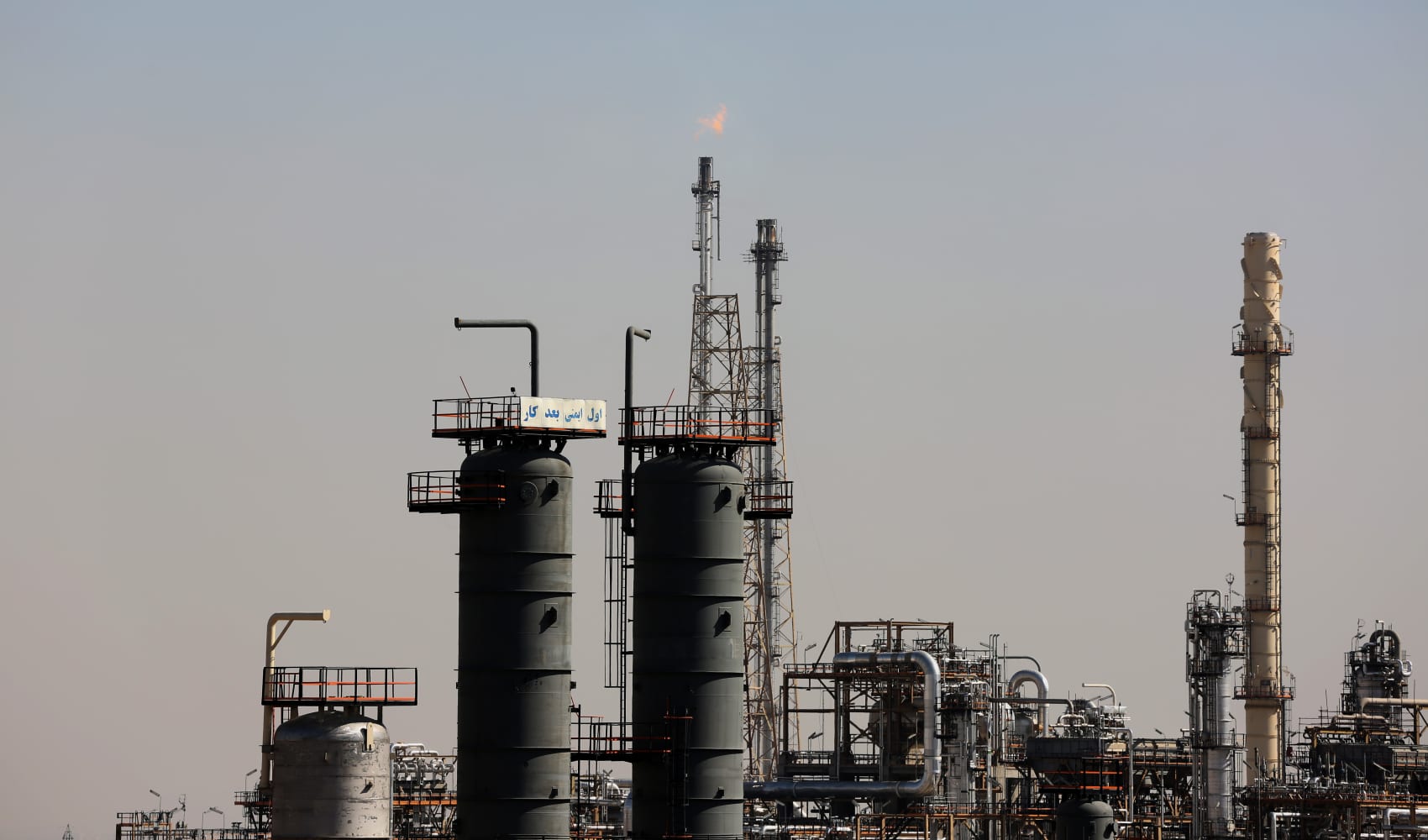
Stocks were split in volatile trading on Monday as investors monitored developments in the Russian invasion of Ukraine, including a new batch of sanctions from the U.S. and its allies.
The Dow Jones Industrial Average slipped 166.15 points, or about 0.49%, but closed well off session lows at 33,892.60. The S&P 500 closed down 0.24% at 4,373.94, while the Nasdaq rallied late in the session for a gain of 0.41% to 13,751.40.
Monday's moves capped off a rough February for stocks, with the major averages all posting sharp monthly losses.
Get a weekly recap of the latest San Francisco Bay Area housing news. Sign up for NBC Bay Area’s Housing Deconstructed newsletter.
The volatile session came amid turmoil over the conflict between Russia and Ukraine, where Ukrainian forces have held key cities including the capital of Kyiv. Officials from both countries held a round of negotiations near the Belarus border on Monday.
"War is fundamentally a 'risk off' environment for risky assets as global investors move into sovereign bonds and other 'safe havens' until some kind of conclusion/new normal becomes priced in. ... Everything about this is unprecedented, so about the only rational thing to say about equities is to expect volatility to continue pending a resolution," Raymond James strategist Tavis McCourt said in a note.
Defense stocks like Lockheed Martin and Northrop Grumman rose 6.7% and 7.9%, respectively. Cybersecurity stocks also outperformed, with Crowdstrike jumping 7.4%, helping limit losses for the Nasdaq.
Money Report
Bank stocks were under pressure, with JPMorgan falling 4.2% and Citigroup dropping 4.4%.
Government bond yields were sharply lower across the curve, with the benchmark 10-year Treasury note most recently at 1.83%, off 15 basis points on the session. A basis point is 0.01%; yields move opposite prices and were lower amid high demand for safe-haven bonds.
The lower bond yields may have helped the tech-heavy Nasdaq Composite outperform, as growth-oriented stocks tend to perform better when rates are low. Shares of Tesla rose 7.5% on Monday.
Currency markets were a major area of volatility on Monday. The Central Bank of Russia more than doubled its key interest rate, to 20% from 9.5% in reaction to a currency move that saw the ruble tumble nearly 22% against the U.S. dollar. The ruble hit a record low against the dollar early Monday.
Over the weekend, the U.S. joined allies in Europe and Canada in moving to bar key Russian banks from the interbank messaging system, SWIFT. The system connects more than 11,000 banks and financial institutions in more than 200 countries and territories.
Additionally, the U.S. and European allies have also taken action against Russia's central bank, effectively freezing the country's foreign reserves.
The sanctions in financial markets had some investors and traders looking for potential disruptions outside of Russian markets.
"Some Russian banks being removed from SWIFT (energy transactions exempt) and the freezing of the Russian central bank's access to its foreign currency reserves held in the West clearly increases economic tail risk," said Dennis DeBusschere of 22V Research.
However, DeBusschere pointed out that Russia can still sell oil and said there could be "loop holes" in Russia's frozen assets, which "might limit the disaster in markets for a few days."
Meanwhile, Russian military vehicles entered Ukraine's second-largest city Kharkiv with reports of fighting taking place and residents being warned to stay in shelters. Russian President Vladimir Putin put his country's nuclear deterrence forces on high alert Sunday amid a growing global backlash against the invasion.
Monday marks the final day of trading for February and, even with a strong rally at the end of last week, the three major U.S. averages all fell more than 3% for the month. The Dow was the worst performer, falling 3.5% for its worst month since November.
Stocks, particularly the tech-heavy Nasdaq, were already in a downturn before the invasion of Ukraine.
The conflict comes "on top of our base case, which is that we were already potentially headed for a bear market due to valuations, rising rates and inflation and the lack of a Fed put," said Phillip Toews, CEO of Toews Asset Management.
"Now is not a great outlook for the markets, despite some short-term rallies like we saw last week," Toews added.
On the commodities front, U.S. West Texas Intermediate (WTI) crude futures rose about 5% to around $95.91 per barrel on Monday. The April Brent crude futures contract rose more than 3% to $101.10 per barrel. Natural gas futures dipped slightly.
Oil stocks were mixed despite the rise in commodities prices. The London-traded shares of BP and Shell fell sharply after the companies announced they would sever ties with Russian energy firms. Occidental Petroleum's stock surged nearly 13%.
Solar energy stocks jumped, with Enphase Energy rising more than 8%, as the conflict made some policymakers more worried about the reliance on fossil fuels.
Russia closed its stock exchange on Monday, but the VanEck Russia ETF dropped 30% in U.S. trading. European bank stocks with more exposure to Russia, including Deutsche Bank, sold off sharply on Monday.






